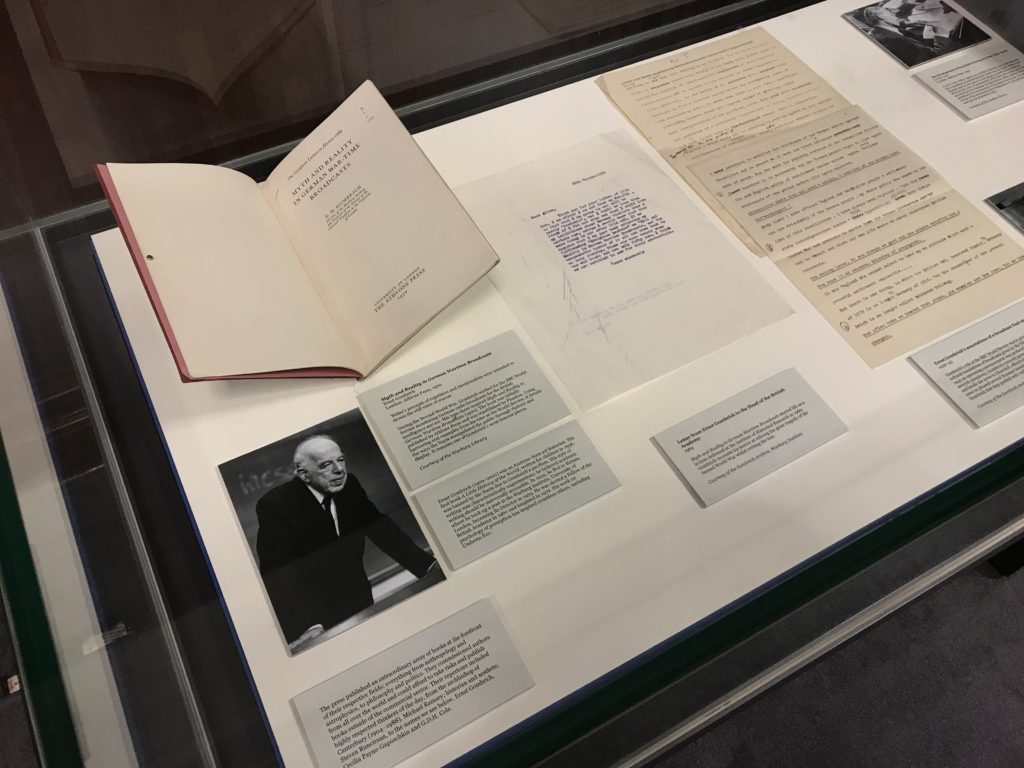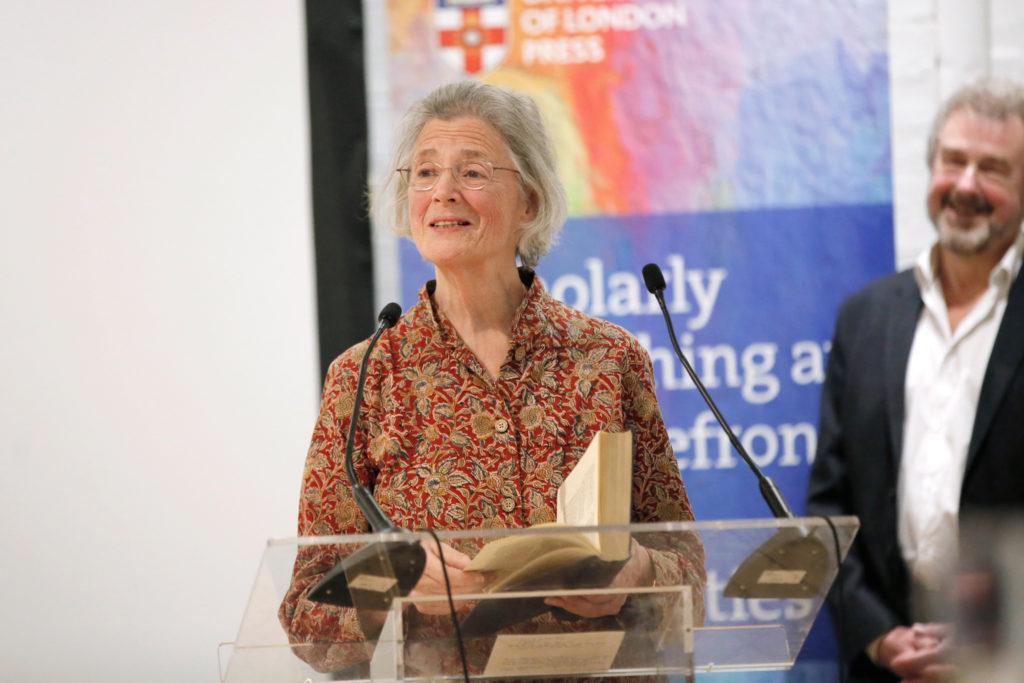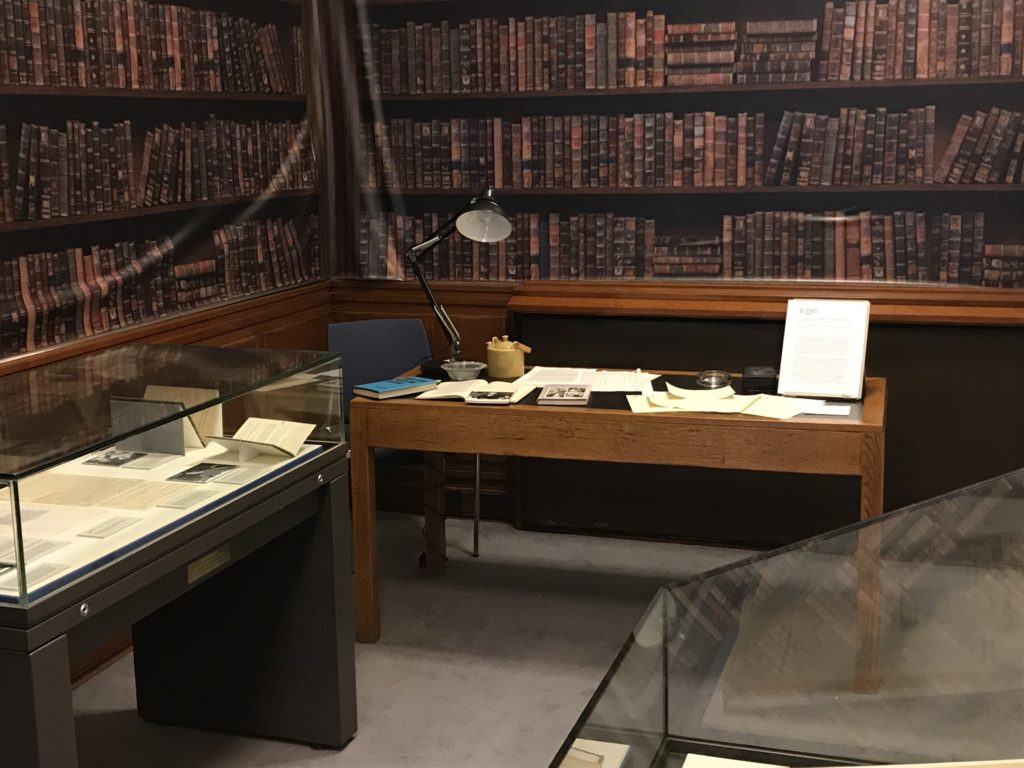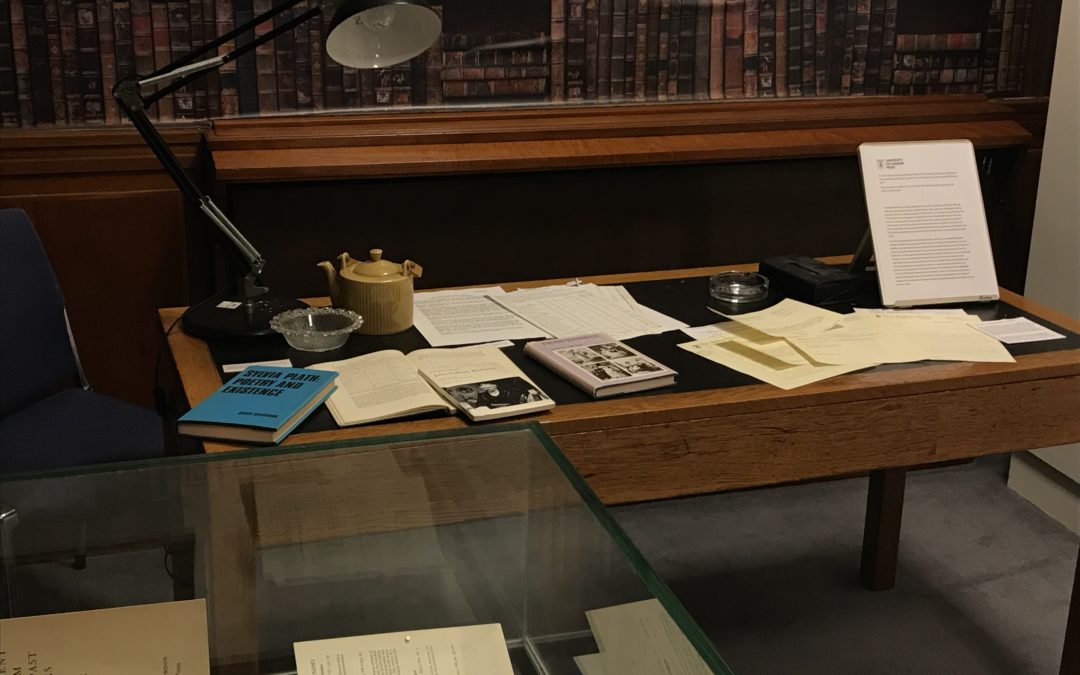By Lauren De’Ath
December 2019 sees the public launch of the new University of London Press. Based at the School of Advanced Study, the Press is a collaborative, open access publisher of humanities research — including edited collections and monographs commissioned by the Institute of Historical Research.
However, the new Press is not the University’s first. Between 1948 and 1978, there was the Athlone Press, named after the University’s then Chancellor. To mark the latest stage in the University’s history as a publisher, Lauren De’Ath looks back at the Athlone years with the help of her new exhibition: ‘Small may be beautiful but it isn’t particularly easy’: a pocket history of the Athlone Press.
Ernst Gombrich writes for Athlone
In October 1969, the art historian Ernst Gombrich wrote to the secretary of the British Academy; they had been talking about Germany and the Second World War. Gombrich’s letter was melancholic. In it, he noted his recent drafting of a talk for the Institute of Historical Research (IHR) entitled ‘Myth and Reality in German Wartime Broadcasts’. The paper, given as the IHR’s annual Creighton Lecture for 1969, was based on Gombrich’s time at the BBC during the Second World War. ‘And’, he writes, ‘the unspeakable horror of it all has come back to me very vividly’.
Just before the outbreak of war, Gombrich had fled his native of Austria and taken up a post as a research assistant at the Warburg Institute in London. Gombrich’s combined Jewish ancestry and pacifism had made him a target for arrest. His first book, A Little History of the World, written for children, was banned by the Nazi Party in 1936. During the war, Gombrich worked for the BBC Monitoring Service, a covert team of some five-hundred academics and linguists from around the world tasked with translating the radio broadcasts of neutral, occupied and Axis-power nations for the British intelligence service. Gombrich provided literal and cultural translations of broadcasts given by the Nazi regime, and it was he who correctly guessed that Hitler was dead when a radio announcement in 1945 was prefaced by Bruckner’s seventh symphony.

It was Gombrich’s time at the BBC that inspired his later IHR lecture and caused him such agony in the autumn of 1969. In the following year the lecture was published by the University of London’s former publishing house, the Athlone Press. The book included harrowing examples from his time at the Monitoring Service, and details the myriad ways the Nazis manipulated the public via rhetorical devices. It remains one of Gombrich’s most enduring publications with many prescient lessons for our own current political climate.
‘Small may be beautiful but it isn’t particularly easy’
Gombrich’s hand-annotated scripts of Nazi speeches are currently on display in Room 101 of Senate House as part of ‘Small may be beautiful but it isn’t particularly easy’ — a ‘pocket history’ and exhibition celebrating the work of Sir Ernst’s publisher, the Athlone Press. The exhibition is prompted by the launch, in autumn 2019, of the newly reinstated University of London Press. This new press is the latest incarnation of a rich and proud publishing tradition at the University, which takes in the Athlone Press for whom Gombrich was but one of many prominent authors in the post-war decades.
The University of London established the Athlone Press in 1948 with the modest intention of publishing talks delivered by lecturers from across the federation. Athlone’s staff committed to this and more; branching out into expansive new areas of study, including exploratory topics in neuroscience, architecture, astrophysics, biology, anthropology and poetry. Athlone duly commissioned some of the most prominent thinkers of the post-war era, among them the historian and aesthete, Steven Runciman; the academic socialist reformer, G.D.H. Cole; the archbishop of Canterbury, Michael Ramsey, and the astrophysicist, Cecilia Payne-Gasposchkin.
Payne-Gasposchkin was the first person to argue that stars were composed primarily of hydrogen and helium. Her ground-breaking thesis was initially rubbished by its reviewer, one Henry Norris Russell. However, he later published a paper in which he agreed with her research (Norris Russell was subsequently widely credited with the discovery). With the Athlone Press, Payne-Gasposchkin published Variable Stars and Galactic Structure (1954), a study into the luminosity of stars that helped pave the way to understanding the structure of the Milky Way.
Closure of the Athlone Press
By the 1970s, the University was subsidising Athlone to the tune of some £30-50,000 per annum. Following that news, it didn’t take too long for the accountants to raise concerns about the press. In 1977 the University’s central administrators mounted a controversial and secretive enquiry into the running of Athlone, and offered some disturbing prognoses which included selling on or fully closing down the press. News of this thinking prompted a national outcry.
One Athlone author, the historian Dr Caroline Barron (The Reign of Richard II, 1971) — then a young lecturer in history at Bedford College — had a greater vested interest in maintaining Athlone than its many other champions: her father, William David Hogarth (1901-1965), had been Athlone’s first and longest-standing secretary. Alongside her husband, Professor John Penrose Barron, Caroline now sought to rally the academic community to defend Athlone.
In addition to a well-received petition, Dr Barron wrote a rousing protest article in the University’s Bulletin decrying the decision to close the press. The story was picked up by the Times Higher Education Supplement, which carried a damning article (October 1977) asserting that ‘This is not the moment for universities to be relinquishing their commitment to scholarly publishing’. In addition to those in the media, the academic community was vocal in its opposition to Athlone’s threatened closure. The campaign received legal advice from scholars at the LSE and in a letter to Dr Barron, one lecturer lamented ‘the philistine log-rollers of the Senate House’.
However, the campaigns were all for nought. In 1978 the University sold Athlone to a local printing firm, the Bemrose Corporation. For the next four decades the University of London was without a press of its own: until this year when the University of London Press was relaunched as an Open Access publishing house in the humanities.
Caroline Barron and the new University of London Press
Fittingly, one of the new Press’s first authors is Caroline Barron: now an eminent professor of medieval history, and co-editor of a new collection Thomas Frederick Tout: refashioning history in the twentieth century, published by the Press as part of the IHR’s Conference series of books in September 2019. Caroline’s also the recipient of a second IHR / University of London Press collection — Medieval Londoners — commissioned by former students and colleagues to celebrate her 80th birthday and published in December 2019.

On 3 December Caroline was present for the official launch of the new University Press, at which she spoke — holding aloft both her 1971 and 2019 publications. ‘It’s great’, she concluded, ‘to think that my career has been book-ended by publishing both with Athlone and the new University of London Press.’
‘Small may be beautiful, but it isn’t particularly easy’: A Pocket History of the Athlone Press runs at Room 101, Senate House, University of London, from 28th November to 13th December 2019. Further details of the new University of London Press are available here.

All IHR books are now published as free Open Access titles by the new University of London Press. These include The Family Firm: Monarchy, Mass media and the British Public, 1932-53, the first book in the New Historical Perspectives series. NHP is a new Open Access monographs series for early career researchers, run by the IHR and the Royal Historical Society. All IHR books are also freely available as chapter downloads (some 250 book chapters) via JSTOR OA Books.
Lauren De’Ath is Publications and Marketing Officer at the University of London Press and curator of ‘A Pocket History of the Athlone Press’.

